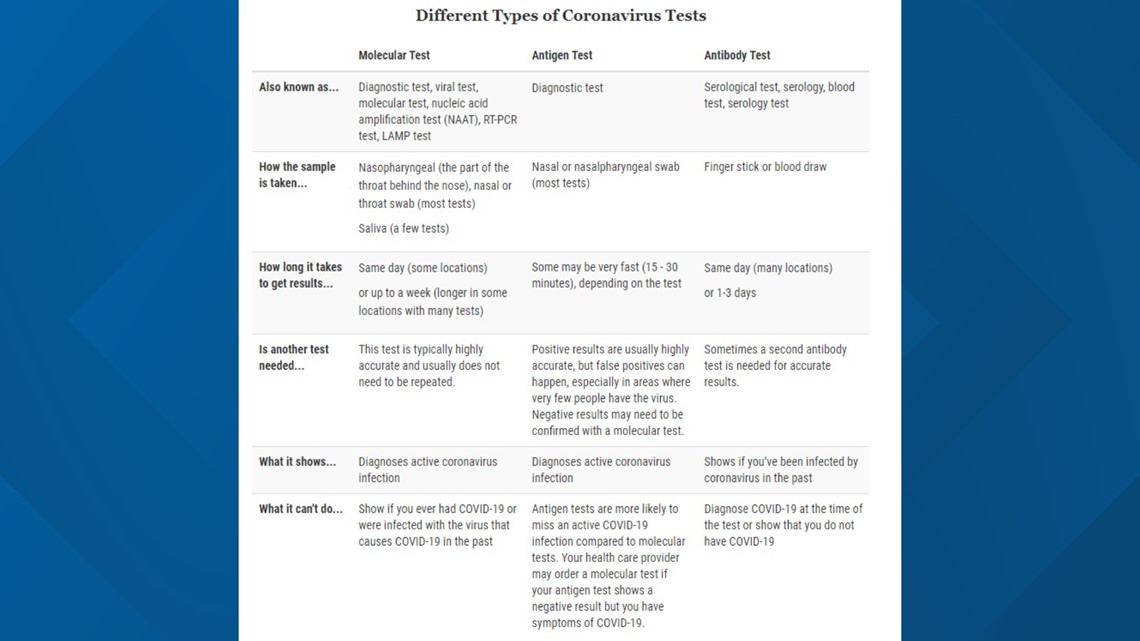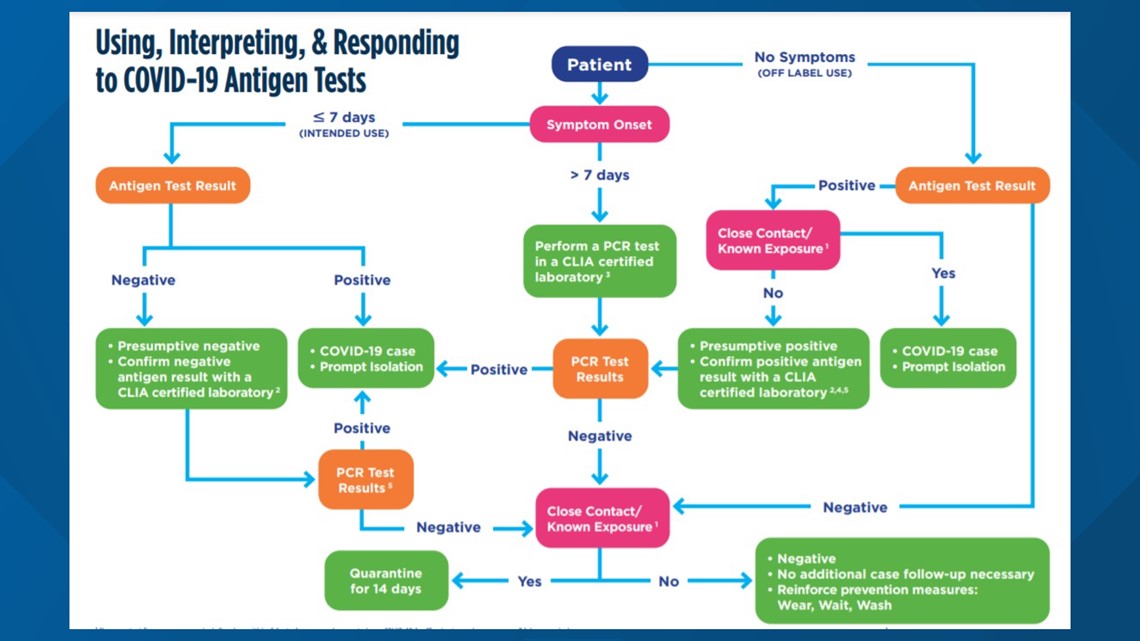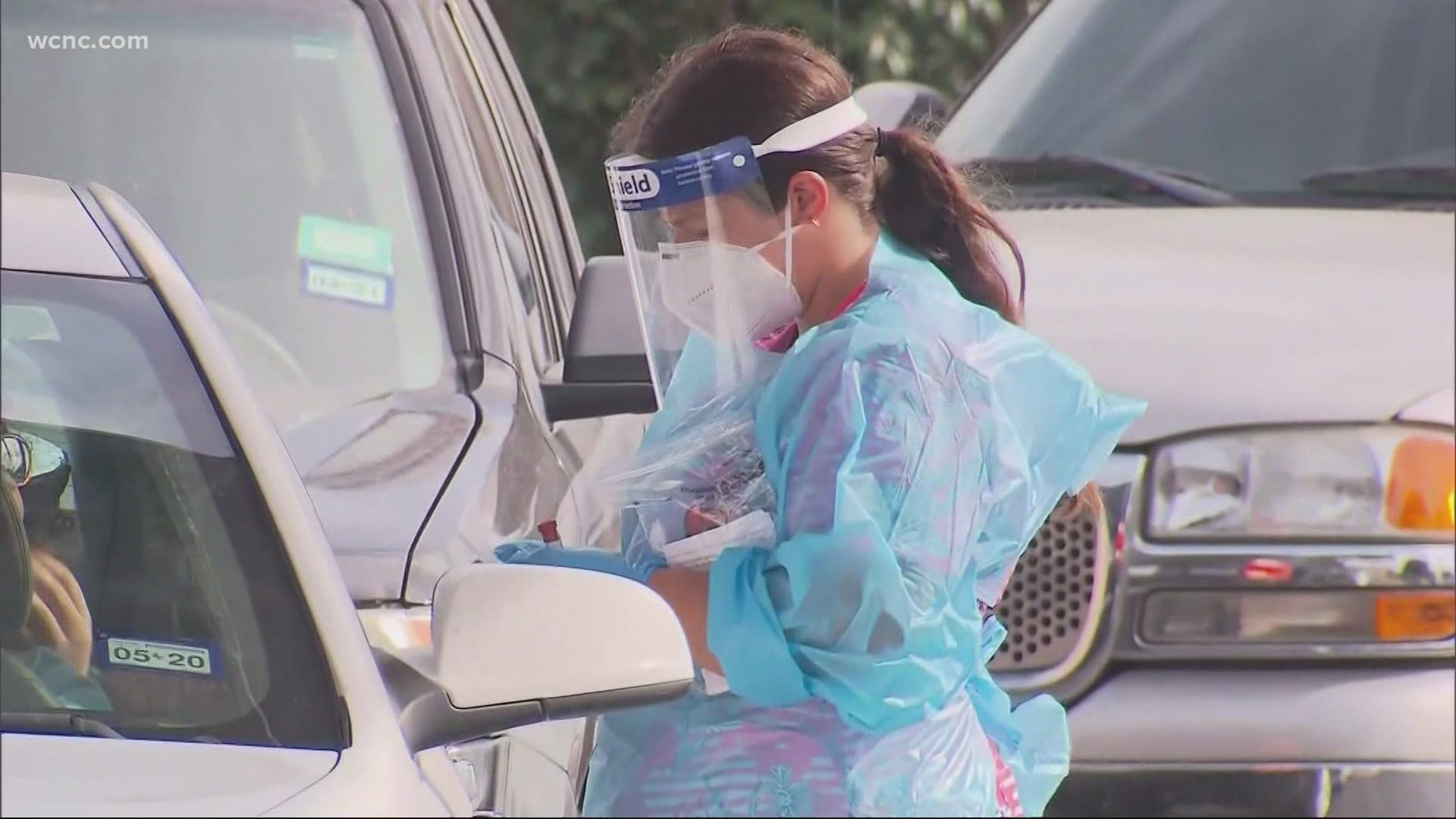CHARLOTTE, N.C. — As health officials urge people to get tested ahead of Thanksgiving gatherings, questions are arising about the accuracy of certain COVID-19 tests.
Last week, Space-X founder Elon Musk tweeted about his recent testing experience, writing that he took four rapid antigen tests in one day and got back results split down the middle.
In August, Ohio Gov. Mike Dewine had to pass up a planned meeting with President Donald Trump after getting a positive rapid antigen result. A follow-up molecular test came back negative.
The common thread: the antigen test.
According to the U.S. Food and Drug Administration, diagnosing an active coronavirus infection comes down to two tests: the molecular test (also called PCR), which can take up to a week to give results, and the antigen, which can render results in several minutes.
The FDA regards the molecular test as more accurate.
The antigen test, on the other hand, is more likely to miss an infection and can sometimes yield a false-positive result.
See the FDA's explanation of different coronavirus tests below.


In early November, the FDA released a letter that states false positives with antigen tests are happening, writing that it can happen when the test is administered outside its authorized instructions. In some cases, that means someone without symptoms has taken the test in off-label use.
The letter did not give a flat accuracy rating for the antigen tests, noting it can depend on the disease prevalence in a specific community.
The North Carolina Dept. of Health and Human Services issues guidance for clinicians administering antigen tests. Considering other factors, like the onset of symptoms, known exposure, and results of follow-up molecular tests can determine how a case is handled.


NCDHHS states it does not include in its daily case totals asymptomatic people with a positive antigen test who received a negative follow-up PCR test within 48 hours.
The agency's website also notes the calculation of the state's positive test rate only includes PCR tests, not antigen tests. State data shows antigen tests make up about 11% of North Carolina's 317,495 reported infections.
Despite the possibility of a false positive, Dr. Jennifer Womack with Tryon Medical Partners urges people to err on the side of caution.
"I encourage patients to never, ever assume they have a false positive because the consequences of ignoring that result can be catastrophic for your family," said Womack.
Womack also states a negative result can give a false sense of security.
"I think I've had a few false negatives — people that I've had a really high suspicion about," said Womack, noting those have usually been cases where all but one in a family test positive. In that situation, she said, she might have the one person with a negative result test again.
Womack pointed out that Tryon Medical Partners has brought on more rapid tests in anticipation of increased post-holiday demand, but these rapid tests are molecular, not antigen, and give comparable accuracy to the send-off PCR tests that usually take days for a result.
"The only reason we decided to use it is because it's really reliable," said Womack.

